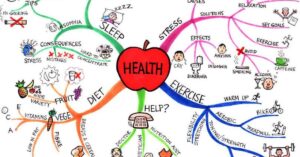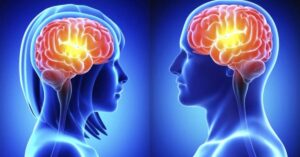Pakistan is at a turning point, grappling with political chaos that seems to grow by the day. Protests have become a regular sight, while sharp debates over leadership dominate headlines. The nation faces rising inflation, governance challenges, and a restless public demanding answers. Political players are locked in power struggles, leaving the country in a state of uncertainty. For many, the question is not just about who will lead but whether stability can even be achieved.
This is not just a crisis—it’s a defining moment for Pakistan’s future. The decisions made today will echo for years to come, shaping the country’s path forward. Will leaders prioritize unity, or will divisions push the nation further into chaos? The pressure is immense, and the world is watching. But at its heart, this is about the people of Pakistan—their resilience, their choices, and their voice. How they respond in this moment could change everything.
Democracy and the rule of law

Fair and just societies are based on democracy and the rule of law.. Democracy gives people the power to choose their leaders and influence decisions that shape their lives. The rule of law ensures that everyone, including leaders, must follow the same laws. Together, they protect rights, promote fairness, and build trust in government. Without these principles, corruption and injustice can take over, leaving citizens powerless and societies unstable.
When democracy and the rule of law are strong, nations thrive. People feel secure knowing their voices matter and that justice is upheld. But maintaining these principles takes effort. Leaders must respect laws, and citizens must safeguard their democratic rights. If either principle weakens, the balance is lost, and chaos often follows. That’s why protecting democracy and the rule of law is essential for a peaceful and prosperous future.
Power to the People
Democracy gives people the right to choose their leaders and shape their future. It ensures that every citizen has a voice in decision-making through free and fair elections. Without this system, power can become concentrated in the hands of a few, silencing the majority.
Equal Justice for All
The rule of law guarantees that everyone is treated equally, regardless of their status or position.As a result, it prevents abuse of power and ensures accountability. This principle creates fairness and trust in a society, protecting citizens from injustice.
The Balance of Democracy and Law
Democracy and the rule of law depend on each other to maintain stability. In a democracy, representation is ensured by the rule of law, while fairness is ensured by the rule of law. Together, they form the foundation of a peaceful and functioning society.
Protecting the Foundations
Safeguarding democracy and the rule of law requires effort from both leaders and citizens. Leaders must govern responsibly, and people must stay engaged to protect their rights. Without these efforts, these principles can weaken, leading to instability and injustice.
Deficits in the area of human rights
Human rights violations are a growing issue in many parts of the world. In some countries, people are denied their basic freedoms, such as the right to speak freely, to protest, or to practice their religion. Governments often suppress opposition, and ordinary citizens face threats for speaking out. These actions create fear and insecurity, harming the fabric of society.
Deficits in human rights lead to widespread inequality. Women, minorities, and marginalized groups often face discrimination, limiting their opportunities and freedom. The lack of proper laws and protections allows powerful groups to exploit vulnerable populations. This systemic injustice leaves people feeling powerless and trapped in a cycle of oppression.
The failure to address human rights issues also affects economic and social development. Countries with weak human rights protections struggle to attract investments or build trust within their communities. Without equality and justice, long-term peace and prosperity become impossible. Protecting human rights is not just a moral obligation, but a key factor in a nation’s growth and stability.
Basic Rights Denied: Many people are denied basic freedoms like free speech, religion, or the right to protest.
Suppression of Opposition: Governments often silence those who oppose them, creating fear and insecurity.
Discrimination: Women, minorities, and marginalized groups face unfair treatment and limited opportunities.
Exploitation of Vulnerable Groups: Powerful groups take advantage of those without protection under the law.
Weak Legal Protections: Lack of strong laws allows injustice and inequality to persist.
Economic Impact: Poor human rights protections hurt a country’s economy and development.
Cycle of Oppression: Without justice, people are stuck in a system of poverty and inequality.
Long-term Effects: Failing to address human rights harms peace, stability, and growth in society.
Conclusion
Human rights deficits are a serious issue that harm societies in many ways. When basic freedoms are denied, it leads to fear, inequality, and a lack of trust in the system. Governments that suppress opposition and allow discrimination only create divisions and injustice. Marginalized groups, including women and minorities, suffer the most, often facing violence, poverty, and limited opportunities for improvement. Without strong legal protections, these problems persist, and the most vulnerable are left to struggle in a broken system.
To address these deficits, it’s essential for governments to enforce laws that protect everyone’s rights equally. Legal reforms are needed to prevent exploitation and ensure fair treatment for all people, regardless of their background. Societies that prioritize human rights are more likely to experience long-term peace, economic growth, and social stability. Without these protections, injustice will continue to hold back progress, making it difficult for nations to thrive. Only through a commitment to equality and fairness can we create a better future for everyone.
FAQ,s
What are human rights deficits?
Human rights deficits occur when basic freedoms and rights are denied or violated by the government or other authorities.
Why are human rights important?
Human rights are essential for ensuring equality, justice, and the protection of individual freedoms in society.
How do human rights deficits affect society?
They lead to inequality, discrimination, poverty, and a lack of trust in the system, hindering social and economic progress.
Who is most affected by human rights deficits?
Marginalized groups, such as minorities, women, and the poor, are most often the victims of human rights violations.
What can be done to address human rights deficits?
Governments must enforce strong legal protections to ensure equal rights and prevent discrimination and exploitation.
Guest Blogger and Content Writer










